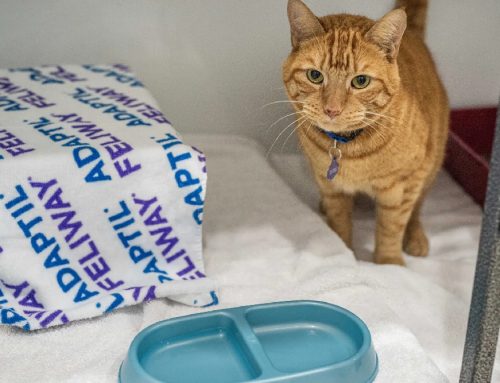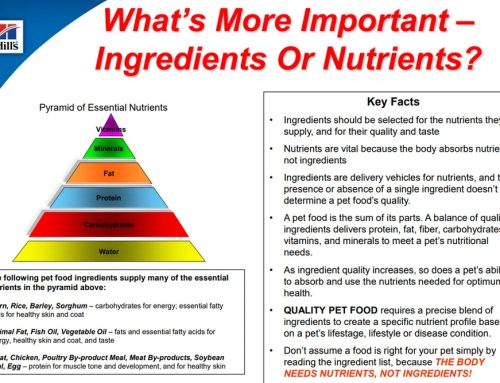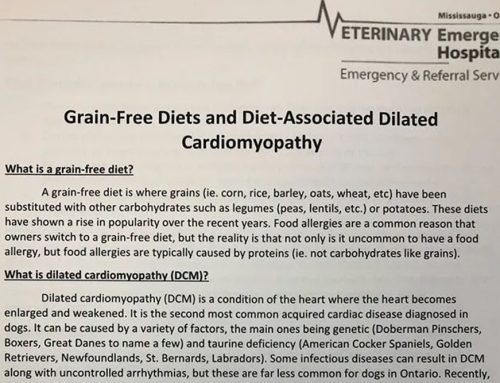Keeping Your Pet Fit: Simple Strategies to Combat Pet Obesity
Obesity is an all-too-common issue among pets, and it’s more than just a cosmetic concern. Those extra pounds can put your pet at risk for serious health problems, including joint pain, diabetes, and even heart disease. But the good news is, with the right approach to diet and exercise, you can help your pet maintain a healthy weight and live a longer, happier life. At Mac Animal Clinic in Oakville, Ontario, we believe in proactive care, including tailored nutrition and weight management, to help your pet live a healthier, happier life.
Here’s what you need to know about pet obesity, its risks, and how you can help your pet maintain a healthy weight.
What Causes Pet Obesity?
Pet obesity is often the result of several factors, including:
- Overfeeding: Many pet owners overestimate how much food their pet needs, especially when it comes to treats and table scraps. These extra calories add up quickly.
- Lack of Exercise: Pets, especially those that live indoors, may not get enough exercise. A sedentary lifestyle is a significant contributor to weight gain.
- Medical Conditions: Some health issues, such as hypothyroidism or Cushing’s disease, can cause weight gain or make it difficult for your pet to lose weight. Other conditions that cause pain upon movement, like from arthritis, make it harder for your pet to want to exercise.
If you’re worried about your pet’s weight or think there could be a health issue involved, consider scheduling a Fear Free veterinary visit. We can evaluate your pet’s weight, develop a targeted nutrition plan, and check for any potential health complications related to their weight. From there, we will create a long-term weight loss plan and schedule follow-up appointments with our dedicated technicians to monitor progress and ensure your pet is losing weight at a healthy rate. With our in-house diagnostics, we can promptly address any issues and provide comprehensive care to support your pet’s well-being.
Health Risks Associated with Pet Obesity
Carrying excess weight can put your pet at risk for various serious health conditions, including:
- Diabetes: Obesity is a major risk factor for diabetes in both dogs and cats. Over time, excessive fat can lead to insulin resistance, making it harder for your pet to regulate their blood sugar levels.
- Joint and Mobility Problems: Excess weight puts extra strain on your pet’s joints, which can lead to arthritis and decreased mobility. This is particularly problematic for older pets or large breeds already prone to joint issues.
- Heart Disease: Just as in humans, carrying extra weight can increase the risk of heart disease, which may lead to decreased lifespan and quality of life.
- Breathing Difficulties: Overweight pets, especially certain breeds, can have trouble breathing, particularly during exercise or in hot weather.
The good news is that with proper nutrition and exercise, many of these risks can be reduced.
How to Determine if Your Pet is Overweight

Fluffy Max before at 50 Kg / 110.2 pounds
One of the easiest ways to assess your pet’s weight is by using the Body Condition Score (BCS). It assesses whether your pet is underweight, overweight, or at an ideal weight based on physical characteristics such as rib coverage and waist definition. Check out images and videos to help you measure BCS on your pet using this article from Ontario Veterinary College.
Here are some signs that your pet might be overweight:
- Difficulty feeling their ribs when you gently press along their sides
- Lack of a noticeable waistline
- Fat deposits around the chest, abdomen, or hips
- Reduced energy or reluctance to exercise
If you’re unsure whether your pet is at a healthy weight, our team at Mac Animal Clinic can teach you how to evaluate your pet’s BCS.
Can Weight Control Really Improve Your Dog’s Health and Longevity?
One of the most significant studies on dog weight and health is the Purina 14-year Life Span Study, which followed a group of Labrador Retrievers over the course of their lives to determine the impact of maintaining a lean body condition. The findings were remarkable: dogs that were kept at a healthy weight lived nearly two years longer than their overweight counterparts, while also enjoying better mobility and fewer health issues.
Key Findings:
- Longer Lifespan: Dogs maintained at a lean weight lived an average of 1.8 years longer than their overweight counterparts.
- Delayed Onset of Chronic Disease: Leaner dogs developed arthritis and other chronic conditions later in life, showing that weight control helps delay the onset of disease.
- Improved Quality of Life: Lean dogs had better mobility and required less medical intervention, meaning they enjoyed a higher quality of life as they aged.
- Healthier Body Condition: Dogs fed 25% fewer calories maintained an ideal body condition score, while dogs that ate freely were more likely to become overweight or obese.
These findings demonstrate that even modest weight control can lead to a longer, healthier life for your pet. For more detailed information, you can visit the full Purina Life Span Study.
Managing Your Pet’s Weight: Practical Tips

Energized Max at 43.2 Kg / 95.2 Pounds
If your pet is overweight or you want to prevent weight gain, there are several ways you can help manage their weight at home:
- Measure Portions: Overfeeding is one of the leading causes of pet obesity. Always measure your pet’s food based on their ideal weight, not their current weight. The portion size will depend on your pets age, activity, medical conditions, and the amount of calories per cup of food. Together, we can calculate the appropriate amount of food to feed your pet each day.
- Choose High-Quality Food: Ensure you’re feeding your pet a high-quality, balanced diet. Some pets may benefit from a weight management formula specifically designed to support fat loss while maintaining muscle mass. Our team can recommend the best options for your pet during your next visit or you can explore our nutrition articles for more information.
- Limit Treats: While it’s tempting to spoil your pet with treats, too many can quickly add up in terms of calories. Instead, reward your pet with healthy, low-calorie options, and ensure that treats account for no more than 10% of their daily caloric intake. Small pieces of fruits and veggies like apples, carrots, and green beans are great options for low-calorie crunchy treats.
- Increase Activity: Make sure your pet gets enough exercise to burn off excess calories. Regular walks, playtime, and interactive toys can keep your pet active and healthy. Consider using food puzzles or engaging toys to encourage movement.
Treating Obesity-Related Health Issues
In some cases, obesity can lead to serious health complications that require medical intervention. For example, if your pet has developed arthritis due to weight gain, we may recommend pain management or other treatments to improve mobility. Learn more about the medical services we offer to support your pet’s health.
If your pet has been struggling with weight-related issues, don’t hesitate to reach out through our contact page. Early intervention can help prevent more serious health problems down the line.
Maintaining a healthy weight is key to ensuring your pet lives a long, happy life. By making small changes to their diet and exercise routine, you can help prevent obesity and reduce the risk of related health issues. At Mac Animal Clinic, we’re here to support you with tailored nutritional counseling, regular weight assessments, and comprehensive Fear-Free™ care. If you’re concerned about your pet’s weight, schedule an appointment with our team today.










